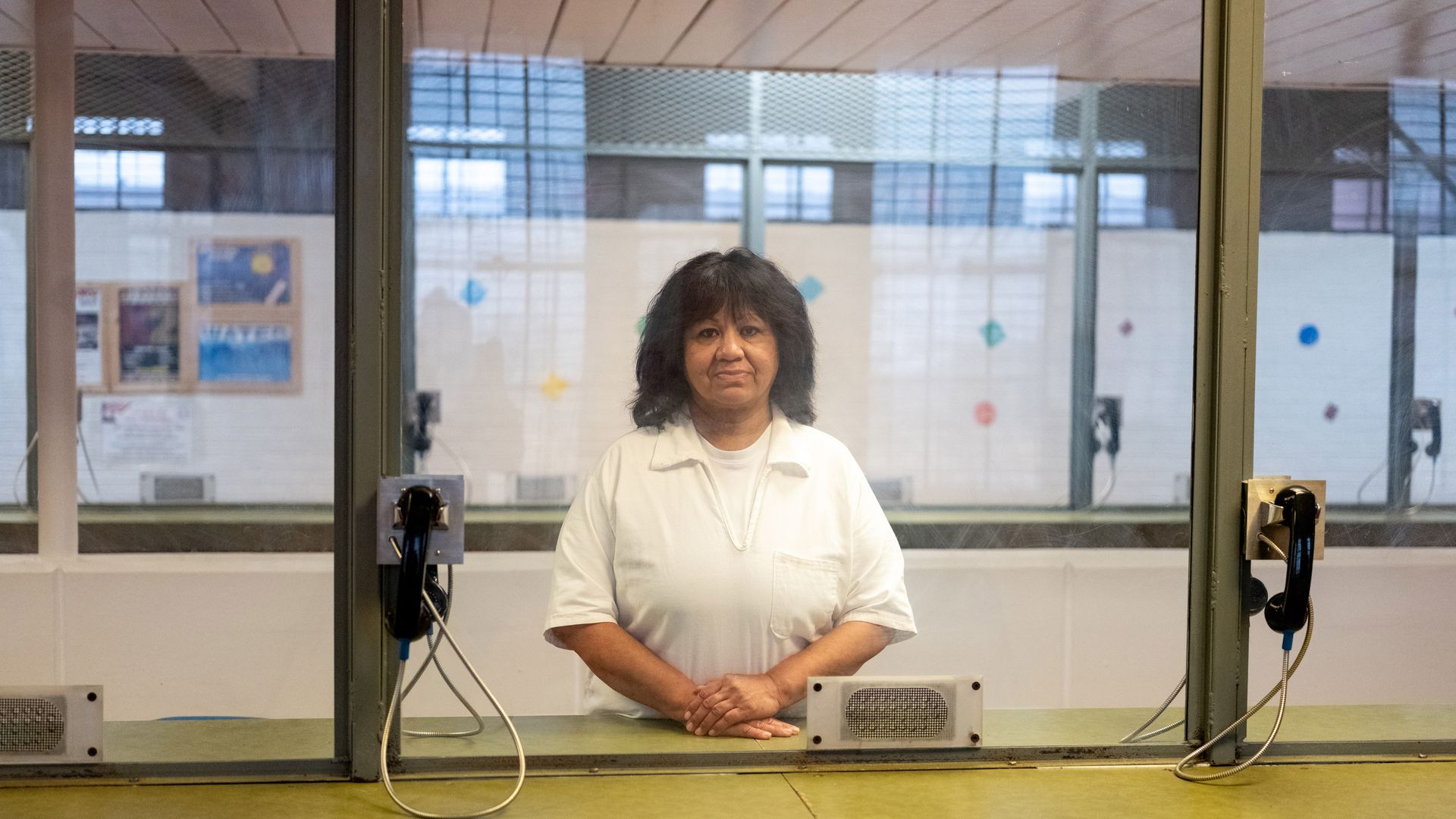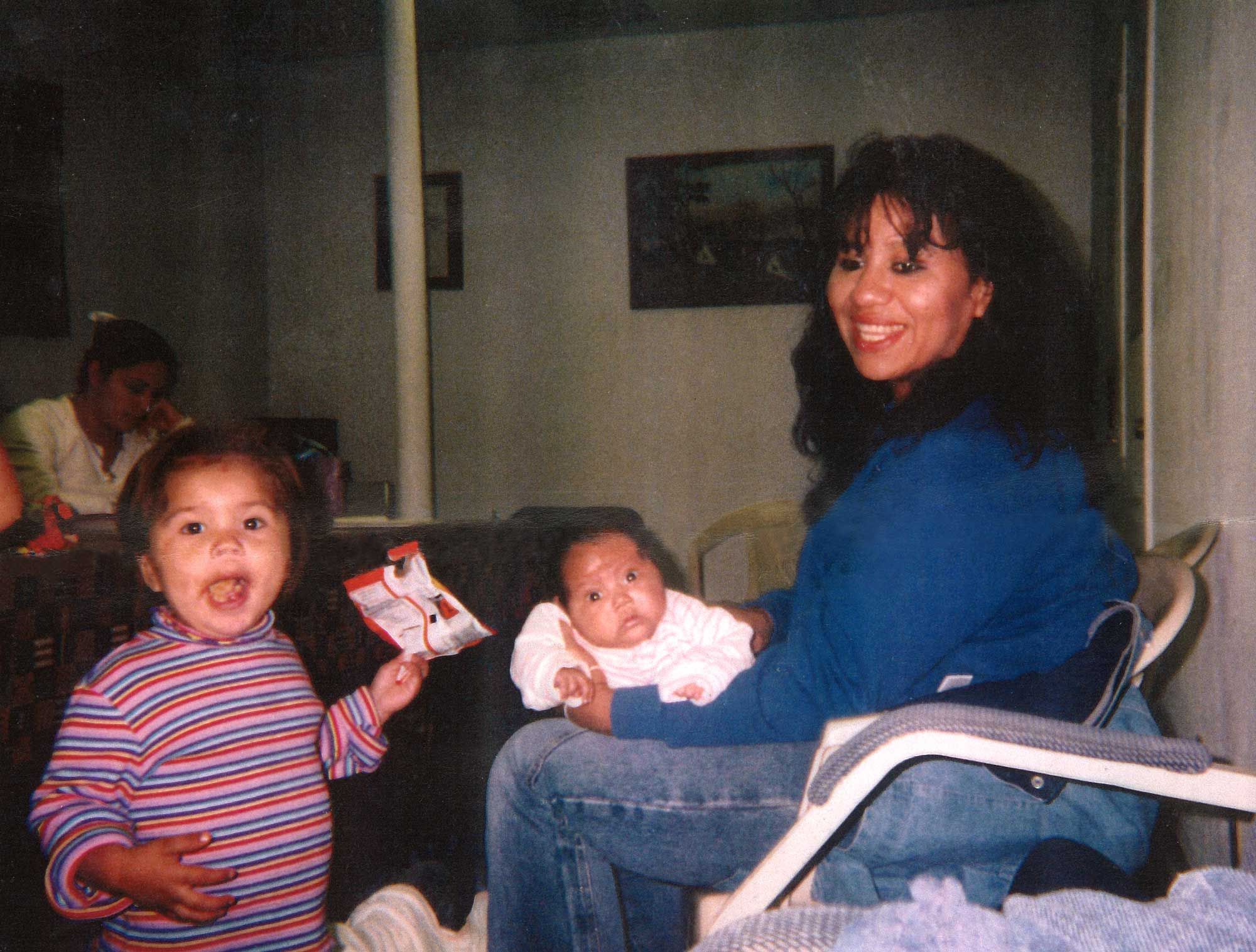Texas woman set to be executed next month appeals for clemency
Add Axios as your preferred source to
see more of our stories on Google.

Melissa Lucio poses for a portrait behind glass at the Mountain View Unit in Gatesville, Texas, on March 21. Photo: Courtesty of Ilana Panich-Linsman for The Innocence Project
A woman who could be the first Latina to be executed in Texas asked for clemency Tuesday, saying she was wrongly convicted in the death of her two-year-old daughter.
The big picture: Melissa Lucio's attorneys say she is a lifelong victim of sexual abuse and domestic violence and that her confession was coerced by police after what her lawyers claim was the girl’s accidental death from falling down a flight of stairs.
Driving the news: Lucio’s team submitted a request to Gov. Greg Abbott and the Texas Board of Pardons and Paroles for her death sentence to be commuted. They also asked for a 120-day reprieve from execution if the commutation is not approved.
- Lucio’s execution is scheduled for April 27.
- The request includes testimony from seven experts who agree that Lucio’s statements to police after a five-hour interrogation were “a mere regurgitation of facts and words officers fed to her” and not a real confession.
- Attorneys claim false medical evidence led a jury to believe Lucio physically abused the child, Mariah, who had a medical condition that led to easy bruising.
- They also say a crime never occurred and that Mariah died as a result of a tragic accident.

Flashback: Lucio was sentenced to death in 2008, a year after Mariah’s death in Harlingen, Texas.
- Lucio repeatedly denied she hurt Mariah during a five-hour interrogation, her lawyers say.
- According to attorneys and experts, Lucio’s lifetime of being abused informed her decision to eventually tell police “I guess I did it.”
- In 2019, she was granted a new trial, but that decision was overturned by an appeals court.
- The Supreme Court last year declined to review the case. In a court filing at the time, the Texas attorney general's office pointed to an autopsy that found Mariah died from “blunt force head trauma."
What they’re saying: “Mariah Alvarez’s death was a tragedy, not a murder. Her brothers and sisters have borne the anguish of losing their sister and they call upon the state of Texas not to compound their pain by executing their mother,” said Sandra Babcock, one of Lucio's lawyers and the director of the Cornell Center on the Death Penalty Worldwide.
What’s next: Lucio's team said the pardons and paroles board doesn’t normally conduct hearings on clemency, but they're asking Abbott to step in and allow them to present the evidence.
- The parole board declined to comment, and a spokesperson for Abbott did not immediately respond to a request for comment.
Editor's note: This story has been updated with a response from the parole board.
Subscribe to Axios Latino and get more news that matters about Latinos and Latin America, delivered right to your inbox on Tuesdays and Thursdays.
